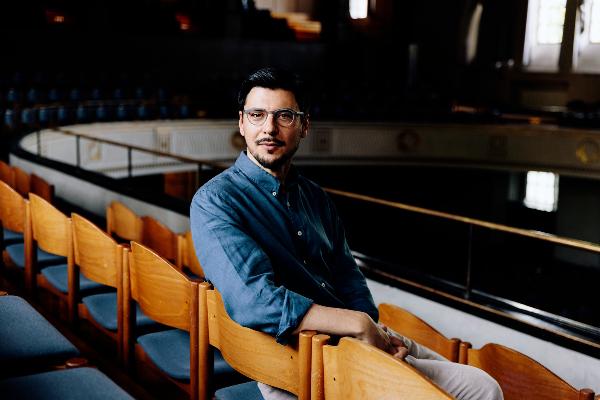“Whether climate crisis, social justice, or digitalization: All the major social challenges of our time always have an organizational component.” Ali Aslan Gümüşay describes himself as an organizational scientist. Having obtained his doctorate at the University of Oxford, he had stints at Vienna University of Economics and Business, the University of Cambridge, and the University of Hamburg. Since the start of 2023, he has been researching at LMU’s Innovation & Entrepreneurship Center (IEC). His chair is established at the LMU Munich School of Management. Alongside his research at the IEC, he heads a research group at the Alexander von Humboldt Institute for Internet and Society in Berlin.
Cooperating in a complex world
Gümüşay is interested in how organizations work and how they create change. He is particularly intrigued by companies that do certain things differently – because, say, they tie profits to environmental or social sustainability in their objectives, or pursue alternative paths in their processes, hierarchies, and organizational structures. This can be anything from feminist co-creation spaces to circular economy hubs to Germany’s first Islamic bank. “Organizational science is a subject that touches on so many different fields,” says Gümüşay. “I see organizations everywhere I look.”
A strong focus of his work is on entrepreneurial thinking, which is not limited to commercial enterprises. “For me, entrepreneurial thinking is the ability to bring about change in a proactive, effective manner. We’re all confronted with this in our everyday lives: in our own households, when studying, at work, when volunteering.” Research into self-organization has huge social significance, observes Gümüşay, in a world that is becoming more uncertain, complex, and contradictory all the time.
Increasingly, organizations have to reconcile different perspectives, whether it comes to interdisciplinary research projects, diverse teams, or opposing political interests. In the spirit of “unity in diversity,” Gümüşay explores how companies manage to deal with tensions and to keep on going despite oppositions.
The topic of impact entrepreneurship is also dear to his heart. “The financial world dubs start-ups with a valuation of over a billion dollars as ‘unicorns.’ We’re trying to position ‘zebras’ as an alternative – that is to say, companies that are focused on generating added value for society and not just on pure profit.”
Real utopias and imagined data
“Futures and Organizations” is the name Gümüşay gives to his most challenging research area at present. This involves looking at how science can act not only reactively, but proactively. “In social science, we usually collect data and then theorize on it. But what if we could imagine data to theorize on?” To this end, he is currently analyzing and extrapolating so-called real utopias – that is, organizations that exist but have operated only on the fringes of society.
Gümüşay plans to illustrate theoretically what would happen if their values became the norm. As the next step, he wants to observe things that have not actually existed in the real world before now. He explains how this insight into possible future scenarios could help in practice to prepare for specific unprecedented situations. “Before the outbreak of the coronavirus pandemic, it would have been difficult in my discipline to publish something about the potential effects of such a virus, because there was no data basis. But research of that nature might have given us a head start.”
Gümüşay wants to find ways of scientifically imagining such datasets. This is a huge challenge: How can you productively imagine data? How far can you go with this? Who validates the data and how? But it is worth exploring these questions: “The world is changing too fast to only respond to events after the fact. Current scientific processes cannot always keep up. In this dynamic world, science must be more proactive, perhaps, while walking the line between speculation and rigorousness.”

